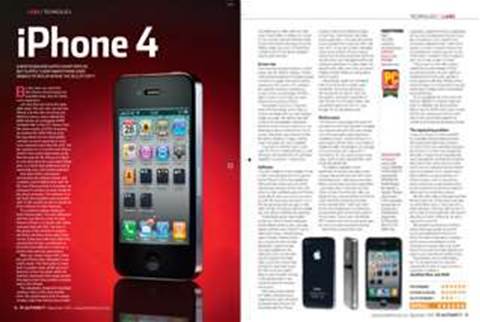Apple's iPhone is forcing a new wave of mobile device innovation, and validates the superiority of Unix-like systems on mobile devices over Windows, claimed Intel chief executive Paul Otellini.
"Virtually every computer and handset manufacturer on the planet is struggling to figure out how to compete with Apple," Otellini said at the Morgan Stanley Technology Conference in San Francisco.
Apple's forthcoming iPhone offers far more features than competing mobile phones, and Otellini believes that handset manufacturers will have to switch to more powerful yet energy-efficient processors to compete.
Intel is developing an ultra low power micro-architecture with integrated graphics that will be able to power mobile devices with mere milliwatts of power. The first version of the chip is slated for release later this year.
The chip features the same architecture as existing server and desktop systems, and will be able to run all existing applications and services.
"If we get power and price down to the right point, I think it is a killer silicon compilation to these kinds of devices," said Otellini.
Intel spun off its mobile phone chip business last year to the Marvell Technology Group. It has been suggested that Apple's iPhone will run a Marvell Xscale processor.
Apple has not disclosed the hardware specifications of the iPhone, but has said that it will be running a special version of the OS X operating system that powers Mac systems.
Otellini touted ultra-mobile handsets as one of the most promising markets for Linux and other Unix derivatives such as OS X.
Microsoft has been unable to meet Intel's requests to create a Windows version that performs well in the mobile space, he claimed.
"Where I see Linux as an opportunity is in ultra-mobile handsets. These things are much more inclined to be a Linux or a Unix derivative kind of product like OS X," said Otellini.
"The power performance footprint in terms of the kernel for Linux for ultra-mobile is quite good as opposed to the footprint for Vista.
"You can get Windows CE in there, but you sure can't get Windows Vista in there as a small kernel version, which we are nudging [Microsoft] to do. We would like to see Microsoft do a much more power-optimised, form factor-optimised kernel."
Windows CE comes in a smaller version for use in embedded devices such as set-top boxes. Microsoft has also developed a special version of the software for mobile phones marketed as Windows Mobile.
But Windows CE fails to meet the feature demands of so-called ultra-mobile PCs, offering full PC functionality as well as all day battery life.
Microsoft and Intel unveiled a first version of such an ultra mobile PC last year codenamed Origami. Although it generated much initial hype, the device was considered a poorly engineered first version.
Intel chief sings praises of iPhone
By
Tom Sanders
on Mar 7, 2007 9:26AM

Got a news tip for our journalists? Share it with us anonymously here.
Partner Content

How Expert Support Can Help Partners and SMBs Realize the Full Value of AI

Beyond the box: How Crayon Is Redefining Distribution for the Next Era

Guiding customers on the uneven path to AI adoption

Shared Intelligence is the Real Competitive Edge Partners Enjoy with Crayon

MSPs with a robust data protection strategy will achieve market success






.jpg&w=100&c=1&s=0)
_(8).jpg&w=100&c=1&s=0)











